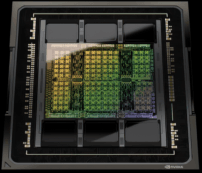As world leaders convene in Glasgow for the kick-off of the COP26 climate conference today, deeper scrutiny will be paid to some of the biggest drivers of global energy consumption and their efforts to ramp up decarbonisation efforts. The cloud technology industry features heavily in that category. A recent report from The Shift Project indicates that CO2 emissions generated by the digital infrastructure and data servers that enable cloud computing have now surpassed those produced by pre-Covid air travel. This is an alarming reality for a planet on the ropes.
Background
As we recently highlighted, 2021 has been a particularly turbulent year for our planet. Increases in the occurrence of natural disasters coupled with the failures to meet emission reduction targets set out in the Paris accord has created an atmosphere of scepticism and resignation ahead of the Glasgow conference.
Energy consumption for electricity and heating remains the primary driver of CO2 emissions globally. While household usage continues to be a problem, rapid evolution in ICT has led to the construction of massive data centers for storage and computational purposes.
Centralisation is the key problem
Expectedly, usual culprits like capitalism and the unwillingness of individuals to delete old social media posts have been blamed for the cloud industry’s significant carbon footprint. A more introspective assessment, however, offers a slightly different verdict. Just 5 of the biggest tech companies leave a combined annual carbon footprint equal to New Zealand. The centralisation of storage and computing resources and its ever-expanding nature now reaches energy consumption levels to the point of imperilling our very survival. At this point, cloud centralisation is no longer a matter of monopolistic nuisance in the way of innovation and competition. It is an existential threat and must be confronted as such.
A viable solution?
Cloud decentralisation remains the only viable path forward. Projects such as Cudos seek to create a unique cloud computing alternative built on a decentralised network, which gives you access to highly efficient and sustainable cloud computing resources. Additionally, Cudos, a blockchain-based high-performance computing platform, will connect developers and users. Consequently, we’re eliminating the dependence on costly, energy-intensive hyperscale companies while also helping to democratise the cloud industry.

How you can contribute
You can play a significant role in fixing this issue. By teaming up with us, you can help create an eco-friendly and innovative cloud ecosystem.
We require distributed data centers and service providers. Kindly reach out to us to discuss how we might work together.
Additionally, if you currently own CUDOS tokens, you may maximise their value by staking them on our platform and helping to secure our network.
United, we can build a decentralised, open, and climate-friendly cloud infrastructure responsive to our planet’s environmental needs.
About CUDO Compute
CUDO Compute is a fairer cloud computing platform for everyone. It provides access to distributed resources by leveraging underutilised computing globally on idle data centre hardware. It allows users to deploy virtual machines on the world’s first democratised cloud platform, finding the optimal resources in the ideal location at the best price.
CUDO Compute aims to democratise the public cloud by delivering a more sustainable economic, environmental, and societal model for computing by empowering businesses and individuals to monetise unused resources.
Our platform allows organisations and developers to deploy, run and scale based on demands without the constraints of centralised cloud environments. As a result, we realise significant availability, proximity and cost benefits for customers by simplifying their access to a broader pool of high-powered computing and distributed resources at the edge.
Continue reading
5 mistakes to avoid in AI infrastructure projects: from inefficient training to poor planning
16 min read
Real-world benchmarks demonstrating performance variances across different GPU cloud infrastructures
11 min read
Choosing a GPU cloud provider in 2025: A proven evaluation checklist
25 min read
How to select the right GPU for your AI workload
18 min read

High-performance cloud GPUs
